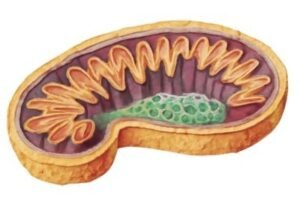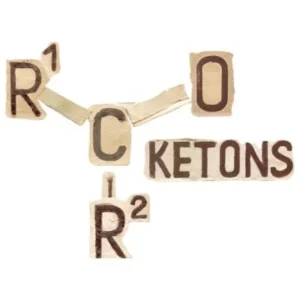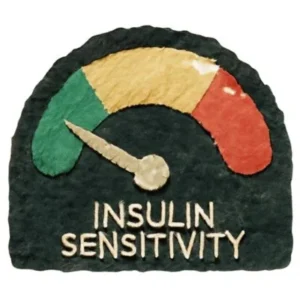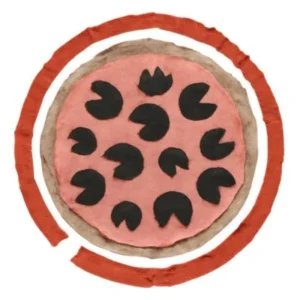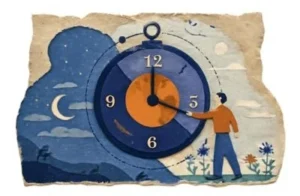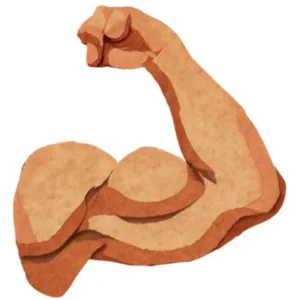Most people think fasting means suffering through hunger. A growling stomach, maybe a little headache, and counting hours until you can finally eat again.
But there is something far more extraordinary happening beneath the surface — something most of us never learn in school or from our doctors.
Table of Contents
ToggleYour body is not punishing you when you fast. It is healing you.
The moment you stop eating for long enough, your cells awaken an ancient process called autophagy (from the Greek words auto = self, phagy = eat → literally “self-eating”).
But don’t be alarmed. This “self-eating” is not destruction. It’s recycling. A quiet, deeply intelligent process where your body breaks down damaged parts, clears out waste, and rebuilds itself with strength and clarity.
In many ways, fasting gives your body the chance to become its own doctor.
And when people finally understand this, they stop seeing fasting as starvation — and begin to see it as the most natural medicine their body already knows how to practice.

WHAT EXACTLY IS AUTOPHAGY?
Imagine a house. Every day, dust collects, old furniture wears out, wires fray, pipes leak. If you never clean or repair, the house becomes dangerous to live in.
Your body is the same. Every day, cells collect:
- Broken proteins (misfolded pieces that don’t work properly).
- Damaged mitochondria (the “batteries” of your cells that stop holding charge).
- Clumps of waste that increase with age.
Left unchecked, this leads to:
- Fatigue
- Brain fog
- Inflammation
- Accelerated aging
- Even chronic disease
Autophagy is your body’s cleaning crew.
It identifies what’s broken, breaks it down, and recycles the useful parts into new, stronger cells.
Researchers now believe autophagy is one of the main reasons fasting supports:
- Longevity (longer lifespan)
- Disease resistance (especially against diabetes, cancer, Alzheimer’s)
- Mental clarity and energy
HOW FASTING TRIGGERS AUTOPHAGY
Normally, when we eat all day, our body is in “growth mode.” Insulin (the hormone that manages sugar) is busy storing energy and building.
But when you stop eating, your body faces a choice:
- Panic?
- Or adapt?
It adapts. Beautifully.
- Insulin levels drop → less storage, more fat burning.
- AMPK rises → a cellular “energy sensor” that switches on repair mode.
- mTOR (growth signal) is suppressed → allowing cleaning and recycling.
👉 Think of it like a city. When construction stops (no food intake), the workers finally focus on repairing potholes, fixing wires, and rebuilding old houses.
That’s fasting. Not punishment. Not weakness. But a shift from growth → repair.
WHEN DOES AUTOPHAGY BEGIN?
There’s no one-size-fits-all. It depends on your health, age, diet, and activity. But science gives us a timeline:
- 12–16 hours fasting → light autophagy begins. (Damaged proteins start clearing.)
- 24 hours fasting → recycling accelerates, especially in the liver and muscles.
- 36–48 hours → deeper autophagy, stronger repair of cells, immune system reset.
- 72 hours → peak autophagy, even old immune cells are destroyed and replaced.
Some fasters describe this phase as:
- Strange mental clarity (as if fog lifts).
- Less hunger than expected.
- A calm strength, like the body is aligned with itself again.
THE GIFTS OF AUTOPHAGY
Autophagy is not just science. It is an experience that changes you.
- Longevity (A Slower Biological Clock)
By sweeping away aging cells, autophagy prunes the tree so new branches can grow. This is why fasting is strongly linked with slower aging and longer life span.
- Weight Loss That Heals (Not Just Starves)
Unlike crash diets, fasting makes your body metabolically flexible — able to switch between sugar and fat smoothly. You lose fat while protecting muscle.
- Mental Clarity & Focus
By clearing toxic proteins (like amyloid plaques linked to Alzheimer’s), autophagy protects the brain. Many describe fasting as a reset for the mind.
- Stronger Immunity
Old, weak immune cells are recycled, and stem cells are triggered to produce fresh defenders. Imagine retiring tired soldiers and training new ones.
- Reduced Inflammation
Autophagy calms the body’s chronic “fire” — the inflammation that drives arthritis, skin issues, and gut problems.
HOW TO NURTURE AUTOPHAGY SAFELY
Autophagy is a gift — but like all gifts, it must be unwrapped carefully.
- Start small: Begin with 14–16 hours fasting daily. Increase gradually.
- Keep it clean: Water, black coffee, green tea — nothing else. Even small bites can break autophagy.
- Move gently: Light workouts (yoga, walking, stretching) during fasting deepen repair.
- Break fasts wisely: Start with bone broth, steamed veggies, fermented foods (easy to digest, healing for gut lining).
- Avoid bingeing after fasts: This cancels the repair and shocks the system.
A GENTLE WARNING
Autophagy is powerful, but it’s not for everyone.
- Pregnant or breastfeeding women should not attempt long fasts.
- People with diabetes or chronic illness need medical supervision.
- Extended fasts (48–72 hours) should not be attempted without guidance.
👉 Fasting is medicine. And like any medicine, the right dose matters.
FREQUENTLY ASKED QUESTIONS
Q: At what hour does autophagy really begin?
👉 Most people enter light autophagy after 16–24 hours. Peak benefits often occur after 48+.
Q: Does coffee break autophagy?
👉 Black coffee and green tea may actually support autophagy. Milk and sugar stop it.
Q: Is autophagy the same as ketosis?
👉 No. Ketosis = fat burning. Autophagy = cell cleaning. They often happen together during fasting.
Q: Can I feel autophagy?
👉 Some people feel clarity, reduced pain, or lightness. Others don’t feel it, but healing still occurs inside.
Your Body Already Knows
Autophagy is not a trend. It is an ancient rhythm your body has always known — waiting for you to pause, to stop feeding constantly, and to let repair happen.
When you fast, you’re not starving. You’re trusting your body’s wisdom.
You’re giving it the silence it needs to breathe, clean, and renew.
This is perhaps the deepest nourishment of all — not from outside, but from within.
Many people read about fasting, try it alone, and then stop when the first hunger pangs or headaches arrive. They never reach the point where healing begins.
That’s where guided fasting or personalized care makes the difference. When done with the right knowledge — matched to your body, your health, your cycles — fasting transforms from a struggle into a healing journey.
👉 If you feel your body is asking for this kind of reset, don’t ignore it. Sometimes all it takes is the right guidance to unlock what your body is already capable of.
Because fasting is not just about food. It’s about health, clarity, and freedom — and you don’t have to walk that road alone.

